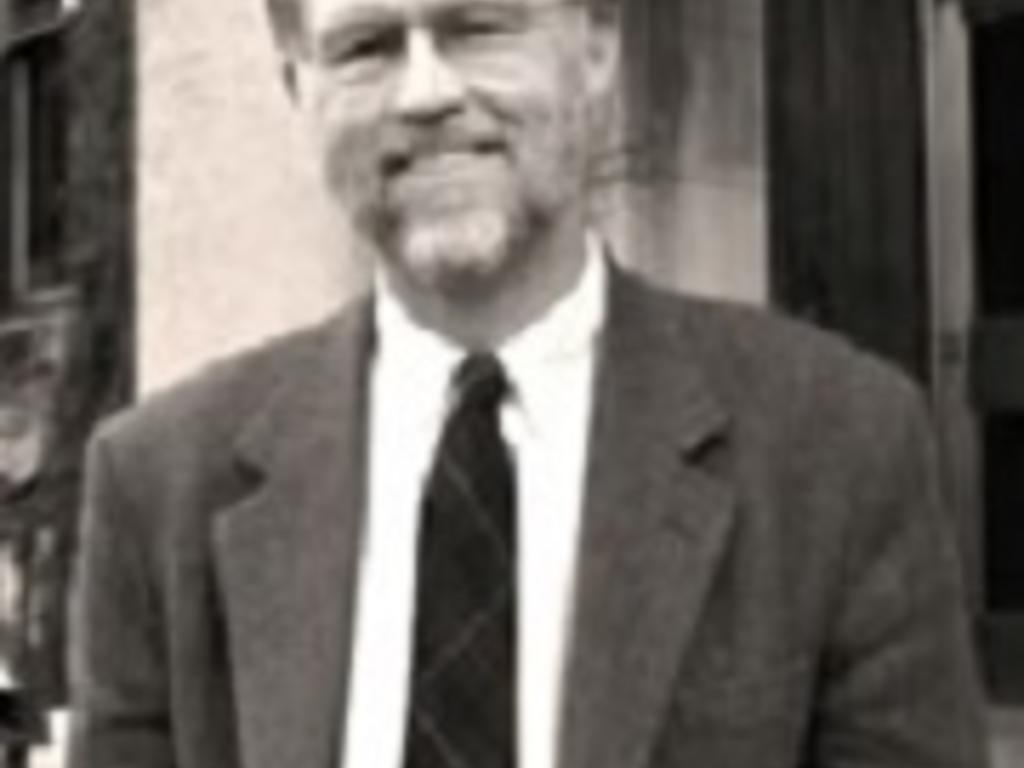Dr. Sidney Strickland’s career path sounds a lot like the way some of his research studies begin: “You are really kind of led by the nose,” he explains. “You are doing experiments and making observations and you think, ‘Well that’s interesting. I wonder what’s going on there.’ And from there you progress to the next stage.”
By following his nose, the Rhodes alum became dean of graduate and postgraduate studies at Rockefeller University in New York City. He is also the head of Rockefeller’s Laboratory for Neurobiology and Genetics that studies afflictions from stress to Alzheimer’s.
Strickland found his love of science through another Rhodes alum, his sister Priscilla ’63. A Biology major, Priscilla would come home from her classes and explain to her 9th grade brother about what she was learning.
“I can still remember one lunch in particular when she described the DNA genetic code to me,” says Strickland, “and fortunately for me, she was an incredible teacher. She was really the first major scientific influence on me.”
In the idiosyncratic way things seem to work in Strickland’s scientific life, it just so happens that Rockefeller University was the place where DNA was first discovered. In fact, in the very building where his lab is located, Oswald T. Avery started what Strickland calls the “DNA revolution.”
As a Chemistry major at Rhodes, Strickland studied under Dr. Harold Lyons, who, since there was no official biochemistry course at that time, gave him tutorials in the subject. One of the things Lyons told him was that if you wanted to study biochemistry, a great place to go would be Rockefeller University. Lyons explained that this was an institution that valued creativity and academic freedom, traits that he saw in Strickland.
As a senior at Rhodes, Strickland found Dr. Martin Morrison, the chairman of Biochemistry at St. Jude Children’s Research Hospital. Without even an appointment, he showed up on Morrison’s doorstep and asked for a job. Impressed by Strickland’s eagerness to learn, Morrison gave him a job in his lab, grinding beef hearts and extracting organic solvents. Morrison, a University of Michigan graduate, encouraged Strickland to go to grad school. Without a formal major in biochemistry, the young Strickland was accepted to Morrison’s alma mater, where Strickland earned his Ph.D. “I know that he had something to do with my acceptance, but I never got him to admit it. He said, ‘You got in on your own merit,’” Strickland chuckles.
After Michigan, Strickland went to Rockefeller first as a research associate, and rose through the ranks where, 10 years later, he became an associate professor. He left for an appointment at the State University of New York at Stony Brook, where he attained the rank of leading professor. In 2000, he returned to Rockefeller as the dean and vice president of Educational Affairs.
Strickland’s understanding of the importance of the liberal arts education he received at Rhodes came full circle in 2000 when he and some colleagues at Rockefeller University offered students at Bard College an opportunity to study the sciences at Rockefeller. “We function with Bard a little bit the way St. Jude does with Rhodes,” he says. “It’s a place where the students can profit from having interactions with a first-class research institution, and we profit from having these young, eager, energetic students who want to get into ‘the business.’”
Strickland started out as a developmental biologist, but one day a few years ago, his lab observed something fascinating about the nervous system. That was a turning point in his studies.
“I am not a trained neuroscientist. Nobody in my lab was a trained neuroscientist. But this observation was really, really interesting. So what do you do? Do you pass it off to some people who are trained in that field and stay with what you know? Or do you take the leap of faith?” he says. “We took the leap of faith.”
With that leap came challenges—finding grants in an unknown field is difficult. But with perseverance and belief in what they were doing, the members of his team made the switch, and the lab is now exclusively a neuroscience lab. “The reason this wasn’t as radical as it seems,” Strickland says, “is that we’re not just stopping one thing and starting something that we have no experience in. It’s more like we have a lot of tools at our disposal, a lot of information … so in a way, that is an ideal situation.”
This leap of faith that Strickland and his other scientists took led his lab to gradually switch its emphasis from developmental biochemistry to neuroscience. He, along with his lab of trained neuroscientists, led groundbreaking studies in the realms of stress, alcohol withdrawal and, most recently, Alzheimer’s.
Strickland came to another important study, one that affects him personally, along what he describes as an “idiosyncratic pathway.” His first science teacher, his sister Priscilla, was severely affected by multiple sclerosis. “One system we are working on is relevant to MS; it involves how nerves are insulated,” he says. “I never set out to study it. By the same token, if we do something relevant, it would engender a tremendous personal satisfaction.”
Strickland’s father, Sidney Strickland Sr., a Procter & Gamble salesman for many years, was also a Rhodes alum, class of 1936. And in another marriage of art and science, Strickland married fellow Rhodes alum and renowned art critic Carol Colclough ’68. That formula has worked for more than 40 years.
Prominently placed on a shelf in Strickland’s office is his 2006 honorary doctor of science degree from Rhodes. “I tremendously value my education at Rhodes. It was just indispensable for what I have done.”
By: Rebecca Flaum
